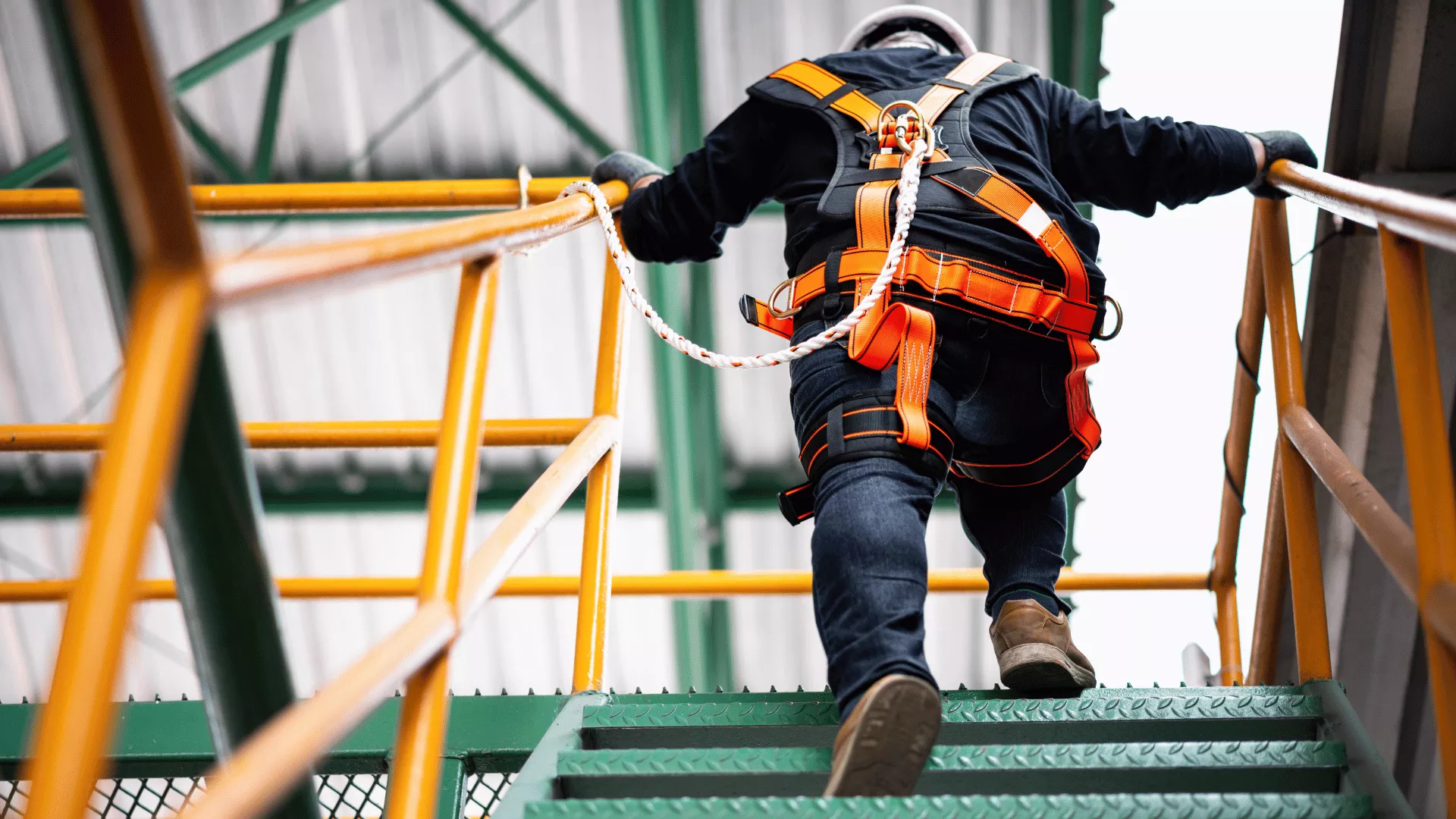
No Falls Week: Reducing risk in the workplace and beyond
Falls remain one of the leading causes of injury and death across the workplace.
Falls remain one of the leading causes of injury and death across the workplace, especially in the construction and agriculture sectors.
In 2023-24, 50 people lost their lives at work in the UK due to falls from height. These falls were responsible for 36% of all workplace deaths, a sharp increase from 25% in 2021-22 and 30% in 2022-23. Furthermore, up to 37,000 people are injured in falls each year, which translates to more than 100 injuries a day. These incidents result in a staggering 688,000 working days lost annually, with a total cost of £957 million to Great Britain.
Over the last decade, a total of 369 people lost their lives, and 418,000 people were injured in fall-related incidents in the workplace.
These figures highlight the urgent need for continuous improvements in fall prevention strategies, particularly in high-risk industries like construction.
In response to this, No Falls Week UK, taking place from 12-16 May 2025, aims to raise awareness of fall risks and promote proactive fall prevention strategies in all environments.
What is No Falls Week?
No Falls Week is an initiative dedicated to reducing the risk of falls, particularly in high-risk environments such as construction sites, healthcare facilities, and agriculture. Falls from heights, slips, trips, and falls on the same level can have severe consequences for both individuals and businesses. This annual awareness campaign not only highlights the statistics surrounding fall-related incidents but also pushes for improvements in safety practices across various sectors.
Why it matters to the construction industry
As professionals in the construction industry, the importance of No Falls Week cannot be overstated. Falls from heights are consistently the leading cause of workplace fatalities in the UK, and the latest figures from the Health and Safety Executive (HSE) paint a concerning picture.
CIOB is dedicated to safety and reducing risks on every project. During No Falls Week, we’re encouraging everyone to review safety protocols, refresh knowledge and we want to inspire everyone to prevent falls and ensure everyone is safe. CIOB's emphasis on safety and professionalism in construction aligns perfectly with the goals of No Falls Week, making it the perfect time to revisit fall prevention measures and strengthen our commitment to worker safety.
How can you control risk of falls?
The safest way to prevent falls is to avoid working at height altogether. Wherever possible, design work processes or use equipment that eliminates the need to work at height. Only when it is absolutely necessary to work at height should you proceed to the next steps of the hierarchy of control: implementing measures to prevent falls and minimise consequences.
Understanding the laws and regulations surrounding fall prevention on construction sites is crucial. The Work at Height Regulations 2005 set out the key requirements to manage fall hazards and ensure workers are provided with the necessary training, equipment, and protection to stay safe while working at height. Additionally, the HSE provides essential guidance to help employers meet their legal obligations and safeguard workers.
Falls from height on construction sites are often preventable. Common causes include inadequate protective equipment, poorly maintained tools, and a lack of proper training. Once work at height cannot be avoided, it is critical to control the risks through preventative measures.
One of the most effective ways to minimise risk is through the regular maintenance and inspection of tools and safety equipment. Well-maintained equipment is less likely to malfunction and cause accidents. Providing the right protective gear - such as safety harnesses and fall arrest systems - is equally vital in protecting workers.
However, equipment alone is not enough. Proper training is one of the most important factors in preventing falls. Workers who understand the risks associated with working at height and know how to correctly use safety equipment are significantly less likely to experience a fall.
To further reduce the risk, best practices must be adopted across all activities involving work at height. Regular risk assessments should be conducted to identify and address potential hazards. Installing guardrails, edge protection, and safety nets around elevated work areas adds critical layers of defence. Clear safety procedures and protocols—including specific fall prevention measures—should be established, communicated, and rigorously followed.
By applying the hierarchy of control—avoiding work at height where possible, preventing falls through protective systems, and minimising the consequences through training and equipment—you can significantly reduce the risk of falls and create a safer environment for all workers.
How Can You Get Involved?
No Falls Week offers an opportunity for professionals to make a tangible difference. Here are some ways you can participate:
- Organise or join training sessions or workshops focusing on fall prevention and safety
- Engage in social media campaigns using the hashtag #NoFallsWeek2025 to spread awareness.
- Conduct safety audits in your workplace or on construction sites to ensure all necessary precautions are being taken.
- Support initiatives aimed at helping vulnerable groups reduce their risk of falling, especially in the community and healthcare settings.
By participating in No Falls Week UK, we take an active role in reducing the risk of falls, improving safety, and protecting lives. As professionals in the industry, we have the power to influence the culture of safety in the construction sector and beyond. From preventing falls on construction sites to reducing risks in other industries, each of us can contribute to creating a safer environment for all.
Let’s make 12-16 May 2025 a week where we actively work to prevent falls and ensure that everyone goes home safely. Stay safe, work smart — and remember, gravity never takes a day off!
Contact our Press Office
We welcome requests for information, comments and interviews from journalists across the globe so please feel free to contact us:
